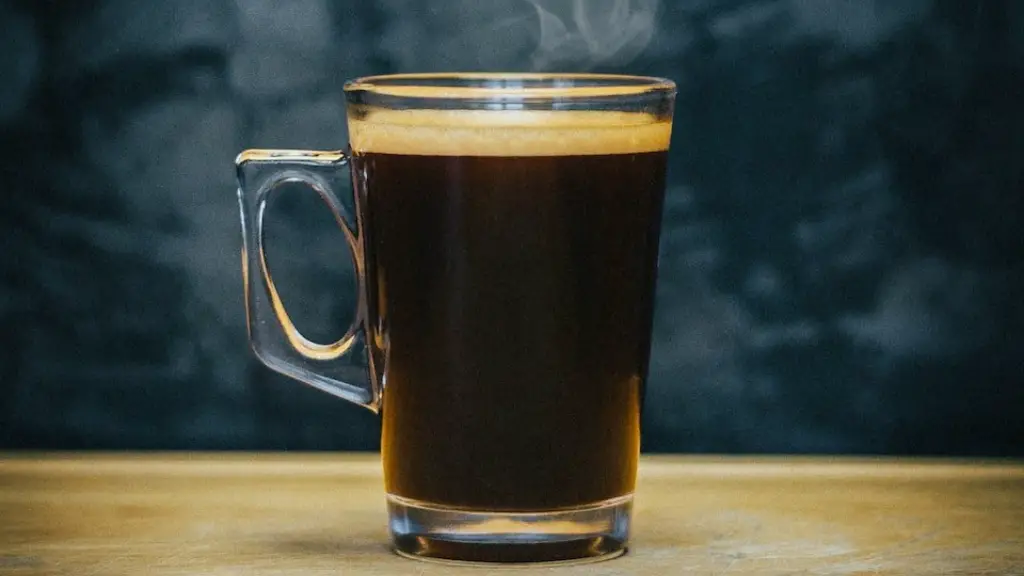Caffeine in early pregnancy – the facts
Caffeine has become an integral part of many people’s morning routines. Whether you’re a dedicated coffee drinker, a fan of energy drinks, or enjoy your caffeine in the form of tea or soda, chances are you consume some form of caffeine every day. While it can often be found in many food and drinks, caffeine can also be found in some medications and supplements, so it’s important to be aware of how much you’re consuming.
For women who are pregnant or trying to conceive, it can be tricky to know how much is too much. The general advice is to keep your caffeine intake to less than 200 mg per day, but how does this apply in the early stages of pregnancy?
Caffeine has been linked to a number of health concerns in pregnant women, such as miscarriages, preterm birth, and low birthweight. As such, it’s important to take care when consuming it during pregnancy, especially in the early stages when the fetus is still developing.
Experts generally recommend limiting your caffeine intake to no more than 200 mg a day during pregnancy, before and after conception. This is equivalent to two regular 8 oz cups of coffee, or one 16 oz “grande” coffee. It’s best to avoid energy drinks and soda, as they are often high in caffeine and other ingredients that can have a negative effect on the pregnancy.
On top of this, it’s important to be aware of less obvious sources of caffeine. Chocolate, tea, and some medications contain traces of the stimulant, so it’s wise to keep track of your total intake to stay within the recommended limits.
In addition to caffeine intake, it’s important to pay close attention to your health in general, as diet and lifestyle can heavily influence a successful pregnancy. Eating a balanced diet, getting regular exercise, and making sure to get enough rest are all essential for a healthy pregnancy.
Caffeine and fertility
Research has shown that caffeine can have an effect on fertility in both men and women. In men, high caffeine consumption has been linked to lowered sperm count, reduced sperm motility, and increased genetic damage to the sperm. Women who consume more than 200mg of caffeine a day see an increase in the time it takes to conceive and are more likely to experience difficulty getting pregnant.
Therefore, it’s best to keep your caffeine intake low if you’re trying to conceive. This includes avoiding energy drinks, as well as coffee, tea, and other sources of caffeine. It’s also important to keep in mind that some supplements can contain trace amounts of caffeine, so it’s always wise to read labels carefully and talk to a medical professional to determine what’s safe for you.
How to reduce caffeine intake
If you’re keen to reduce your caffeine intake during pregnancy or fertility, the first step is to know how much you’re currently consuming. Take note of the foods and drinks you have that contain caffeine. This includes anything from coffee, tea and energy drinks, to chocolate and some medications. Once you have an idea of your current intake, it’s time to reduce it. The best way to do this is to start by cutting out the high-caffeine foods and drinks, such as energy drinks and soda. You can also switch to decaf or herbal teas to reduce your caffeine consumption.
If you’re a fan of coffee, you don’t have to cut it out completely. Start by reducing your consumption gradually and swapping your regular cup of coffee for a decaf one. In addition, you can add milk or water to your coffee to reduce the caffeine content. You can also opt for cold-brew coffee, which generally contains less caffeine than other methods of brewing.
Other strategies to reduce your caffeine consumption include replacing high-caffeine drinks with herbal teas. This way, you’re still getting a warm and comforting drink, but without the potential negative effects of caffeine. You can also opt for activities such as walking and yoga to boost your energy levels instead of turning to caffeinated drinks.
Impact of caffeine intake in women of different ages
It’s important to note that the effects of caffeine on fertility and pregnancy can vary from person to person, as well as depending on age. Research shows that teenage women who consume more than 200mg of caffeine every day are more likely to be infertile. Similarly, women in their early 30s who consume high amounts of caffeine every day are almost 2.5 times more likely to experience fertility problems.
On the other hand, a study of 17,209 women showed that those who are over 35 and consume less than 200mg of caffeine a day, experience no adverse effects due to their caffeine intake. However, women who consume more than this amount are more likely to experience infertility, preterm birth, or babies with a low birth weight.
It’s also important to remember that while 200mg of caffeine is generally considered safe during pregnancy, you should always consult with your medical provider to determine what’s best for your individual situation.
Impacts on the Baby
Caffeine is a stimulant, so it can affect your baby in the womb. Research has shown that when pregnant women consume large amounts of caffeine, their babies are at an increased risk of being born at a low birth weight. Low birth weight babies may suffer a range of health issues, including difficulty breastfeeding and an increased risk of cardiovascular disease later in life.
Studies have also linked higher caffeine intake during the early stages of pregnancy to preterm birth, as well as a higher risk of miscarriage. Therefore, it’s important to be mindful of your caffeine intake during pregnancy and keep it to less than 200mg a day.
Advice for women trying to conceive
When trying to conceive, it’s important to be aware of the potential effects of caffeine on fertility. Caffeine has been linked to reduced sperm count, motility and genetic damage in men, as well as an increase in the time to conception in women. Therefore, it’s advised to keep your caffeine intake to no more than 200mg a day while trying to conceive.
Experts also recommend limiting your overall caffeine intake if you’re trying to conceive. Caffeine can be found in numerous products, including coffee, tea, energy drinks, and medication. Therefore, it’s important to check labels carefully and make sure that you’re not consuming more than 200mg of caffeine per day.
Caffeine alternatives
If you’re keen to reduce your caffeine intake, there are plenty of options available. You can opt for decaffeinated drinks, or try herbal teas for a warm and comforting beverage. Several natural remedies are also available, including green tea and ginseng, which provide energy without the stimulant effects of caffeine.
There are also plenty of non-beverage alternatives available, such as getting regular exercise, eating a balanced diet, and getting enough rest to ensure you have natural energy throughout the day.
Taking control of your caffeine intake
Overall, caffeine can play an important part in your daily routine but it’s important to be aware of the potential effects it can have on fertility, pregnancy, and your baby. It’s recommended to limit your intake to no more than 200mg a day while pregnant, and if trying to conceive, make sure your caffeine consumption isn’t hampering your efforts.
If you’re looking to reduce your caffeine intake, there are plenty of alternatives available to suit all tastes. From decaffeinated options, to herbal teas and natural remedies, there’s something for everyone to stay energised and keep their caffeine consumption in check.





